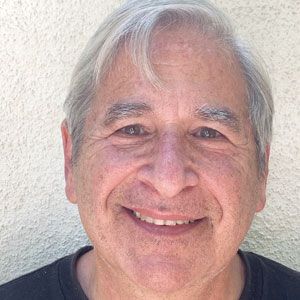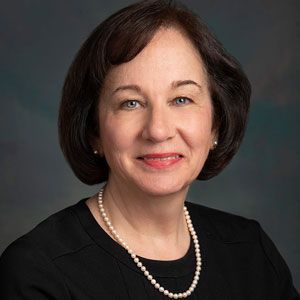Are you going to retire? Have you retired? An article in the spring edition of Scope introduced my goal to assist members who are planning to retire and members seeking greater joy in retirement. Finding fulfillment is the most neglected element of retirement planning. It may be the hardest component to establish and maintain in our retirement years. Fulfillment comes by way of our goals, aspirations, interests, hobbies, recreation, and dreams.
For that Scope article, I interviewed Dr. Alfredo Sadun, who stated that he will approach retirement much like the way he helps residents launch their ophthalmology career: by finding their passion. He said, “Joseph Campbell, the well-known Sarah Lawrence college professor (who inspired director George Lucas), would prescribe: ‘follow your bliss.’ Then, look about for unmet needs. The overlap in this Venn diagram is where you should plan to dedicate some of your post-retirement time.”
In preparing to write these articles, I have interviewed numerous ophthalmologists. I’ve learned from them that there is not one exact definition of “retired”. Many of our colleagues conclude their clinical care of patients but they stay involved by volunteering, teaching, and doing research, usually part-time, in ophthalmology or medicine. We’ll call this “retired from clinical care.” Because they are retiring using multiple incremental transitions it is difficult for them to state that they retired in any one specific year. I’ll use the term “fully retired” for the doctors that transition entirely away from medicine.
Of the doctors I interviewed I will share the answers to the following questions from two individuals who have retired recently:
When and why, they retired?
What they retired to accomplish?
What has brought them fulfillment?
How have they fared?
What would they have done differently with the wisdom of hindsight?
What resources (books, guides, coaches) have they found helpful when retiring?

Dr. Ralph Levinson, of Los Angeles, CA
I retired in 2019, just before turning 67. I had arbitrarily thought 70 sounded good for retiring, but knowing our bodies have a finite duration and not wanting to miss my oldest grandson’s childhood years as he was approaching adolescence, I decided the time was right. You never know how much time you or your loved ones have. I had just finished a block of research, and I was starting to decide whether I wanted to commit to a new project.
I also wanted to retire while I was still pretty much on the top of my game and my career. The stresses of electronic medical records and dealing with health insurance companies didn’t play a role in my decision, though it was easier knowing I was leaving these things behind. Although I was in a great job [as a clinical health sciences professor at UCLA] that fit me well, I wanted to explore life and consider who I was beyond the demanding role of a physician.
I retired to be more available to my family and pursue other things in life. A kind of intellectual and social freedom. I wanted to learn who I am besides being a doctor. I could explore and still be useful by doing volunteer work. I like trying different things out. I’ve never played a musical instrument, and I recently started taking piano lessons and studying music theory. I have also revisited old interests. For a while I went back to drawing and painting. I have long enjoyed reading about quantum field theory, and now I have the time to pursue it more deeply. I have a meditation practice that I can spend more time on now.
I found fulfillment easily while auditing courses at UCLA, volunteering at the California Science Center, the Los Angeles Natural History Museum (the environment and science education are important to me), which ended when the COVID-19 pandemic began. After the pandemic began, I served at LA County vaccination sites. I help food insecure students with my board duties at a nonprofit organization called “Swipe Out Hunger.” I am still in contact with some patients, including most recently a lady with limited vision who teaches cooking to the blind over Zoom. Rather than become highly specialized as I was in my career, I have become a generalist in retirement. Unlike me, other retirees do well pursuing a second career or hobby in only one field. Now, for me, there is so much I want to explore; perhaps later I will specialize.
I have fared well in retirement. Of course, it has only been two years, and there has been the pandemic to deal with. It helped that I was not tied to my identity as a doctor, which may not be typical of other Academy retirees. My intellectual curiosity and flexibility have made it fun. Liberating. I’ve liked reinventing myself.
What would I have done differently — not much. Maybe I should have started to arrange my new volunteer assignments well before I retired, as on-boarding took some time.

Dr. Cynthia Parlato, of New Hartford, NY
I retired in March 2019, just after celebrating my 35th residency reunion from Wills Eye Hospital and the day after my 65th birthday. Purposefully, I avoided the Ides of March.
My decision to retire was multifactorial, and I was interested in pursuing a new path.
To ease the transition for our practice, I became an employee instead of a managing partner. I gave up performing major surgery and focused on medical ophthalmology, minor surgery, and non-refractive laser procedures. This gradual change was beneficial in preparing the office and our patients but was especially helpful to me in saying goodbye to my life’s work.
My plan for the next chapter of my life was to keep active, continue to learn and to “give back” to others while maintaining and enriching my relationships with family and friends. Fortunately, I had a year of retirement before the pandemic when many of us learned, all too abruptly, the effects of social isolation and the “freedom” of doing nothing.
I found fulfillment by attending daily classes at the Mohawk Valley Institute for Learning in Retirement (MVILR). I took classes in art history, music, philosophy, literature, and theology for three semesters before the pandemic. Attending classes also provided an orientation to my days and enabled me to see and interact with people of all ages at one of our beautiful local college campuses.
My major volunteer commitment for over 20 years continues at the Central Association for the Blind and Visually Impaired (CABVI). The CABVI has served and created employment opportunities for the blind and visually impaired for over 90 years, currently serving in 34 counties and 11 states. As a member of the board of directors and chair of the rehabilitation committee, I was recently involved in the establishment of our new 23,000-square-foot Vision Health and Wellness Center.
Fortunately, my husband and I live in a beautiful area of Central New York near the Adirondack Mountains with many lakes and waterfalls and opportunities for outdoor activities which we do year-round. We are involved in our local community, supporting the arts, museums and educational institutions. In our retirement, we plan to remain in our hometown but hope to visit our children and grandchild more often and for longer periods of time.
We utilized Zoom and Facetime extensively during the pandemic for meetings, education, church services and connecting with friends and family. On Zoom, I completed a 30-week course on the Book of John with a bible study group in California. On Skype, I facilitated an English-language intensive for students at a private school in Switzerland.
Gardening, reading, cooking, listening to music and playing the piano have always sustained me and now can be enjoyed at a more leisurely pace. I even have time for “Jeopardy” and streaming movies.I have fared well in these two years since my retirement with my supportive and loving husband of 41 years by my side.
What would I have done differently with the wisdom of hindsight? I would have worried less and valued time more. The revelation of my retirement is that I do not regret my decision. I certainly miss my patients and the satisfaction of helping a patient see well again but I am content. I am enjoying my newfound freedom. I am still a work in progress.
I greatly appreciate Dr. Ralph Levinson’s and Dr. Cynthia Parlato’s willingness to share their stories. In future articles, we will share responses from doctors who retired about 10 years ago. Even if you have not yet retired, what are your answers to these questions?